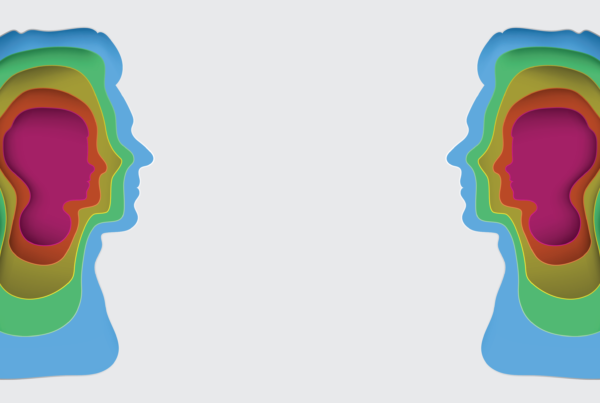
By Richard J. Loebl, LCSW, BCD
The news on TV makes me anxious. I’m worried about a minor health issue. And I’m stressing out about a work situation. Sound familiar? All of us worry and anxiety is a normal part of life. But we don’t have to be controlled by anxiety and worry, and we don’t need to suffer.
We worry about our relationships, we’re anxious about finances, our children, and work or school. Many problems and negative life experiences are genuinely scary and distressful. Anxiety can become overwhelming and interfere with daily life. Panic attacks and avoidance of anxiety-provoking situations can derail our best intentions. In these cases, therapy and medication may be necessary.
The good news is that we have built-in survival mechanisms to help us cope when the going gets tough. Anxiety can be adaptive – it provides the fuel we need to get motivated and take positive action. What can we do?
Five Powerful Methods to Overcome Anxiety and Worry
- Be Here Now – Most of our worried thoughts are about the future. The anxiety we experience is almost always based on negative predictions. We catastrophize and “What if…” ourselves into a frenzy. Fortunately, the present moment is manageable. When we focus on the here and now there is literally nothing to worry about. Notice that when you’re anxious you are focused on something that hasn’t happened yet. Use a thought stop to tell yourself “Stop thinking about that right now,” and immediately refocus your attention on something manageable in the present. You will need to repeat this method many times until it becomes more automatic. This method is closely related to mindfulness practice.
- Mindfulness Methods – Mindfulness is one of the most effective coping skills for dealing with anxiety and worry. Mindfulness is simply awareness without judgment or opinion. It is the primary method used for staying in the present moment. There’s a wide range of mindfulness methods that are simple and easy to perform, and almost all of them start with the breath. Now that’s pretty easy, isn’t it? All you have to do is breathe – and focus on the breath coming in and out of your body. Try doing this several times a day, and it’s guaranteed to work. Effective mindfulness methods include daily meditation, yoga, and progressive relaxation exercises (focused on body awareness and letting go of somatic tension). When we focus awareness on our anxiety without the struggle, and without trying to fix it, it takes the energy out of the anxiety. Try it and see for yourself.
- Acceptance and Detachment – Use the Serenity Prayer to accept the things you cannot change and to detach from your worried thoughts. Over the years I’ve learned to enter fully into my own anxious moments with complete acceptance and surrender. I allow myself to feel the full force of my anxiety physically and emotionally. It’s a little uncomfortable at first, but then it just recedes on its own accord. What we resist persists – what we deny intensifies (Carl Jung). Anxiety can be a scary feeling – and panic attacks are terrifying. But they are only feelings. They will pass. Fighting the feelings only makes it worse.
- Change Your Story – I love the way The Who express this notion in their song “Another Tricky Day”:
We all get it in the end
(Just gotta get used to it)
We go down and we come up again
(Just gotta get used to it)
You irritate me my friend
(This is no social crisis)
This is you having fun
(No crisis)
Getting burned by the sun
(This is true)
This is no social crisis Just another tricky day for you
Is your anxiety and worry truly a crisis? If it is, move on to number 5, below. Most of the time it’s needless worry. And this presents us with an opportunity. We can change our story about our worries with cognitive corrections. When we catastrophize – and we become anxious about the worst possible outcomes – we can correct the negative thinking. True personal growth and learning can result from this process.
I also recommend reducing any dependency on social media and cable news programs. Excessive use of these information sources can be harmful to your mental health – and result in distorted views of reality and unnecessary high levels of anxiety.
5. Personal Empowerment – I suggest that the goal is much greater than reducing or managing anxiety and worry. The goal is personal growth and empowerment. We can move past anxiety and worry by feeling the fear and doing it anyway. And we can learn and grow by using positive self-talk and a full intention to achieve success in all areas of our lives. To a great extent, we are responsible for the outcomes in our lives. By facing our fears, we can do more than just feel better – we can do better by taking ownership of our difficulties and use discipline and responsibility for creating a better life. Own the problem, determine your options, create a plan, and make it happen. Mistakes will happen and it won’t be perfect, but positive action generally results in positive outcomes.
An important aspect of empowerment is self-care. Exercise and a nutritionally balanced, healthy diet are known to be highly effective in reducing anxiety. And supportive relationships with others are also associated with peace of mind and serenity.
These methods for coping with anxiety are generally effective with the kind of normal anxiety and worry that almost everyone experiences. When anxiety is debilitating, when it interferes with daily life, and when panic attacks result in avoidance and excessive personal distress, please contact us today. Therapy and medication are very helpful in reducing these symptoms so that you can use these 5 steps to manage normal anxiety and empower yourself to succeed in life.







